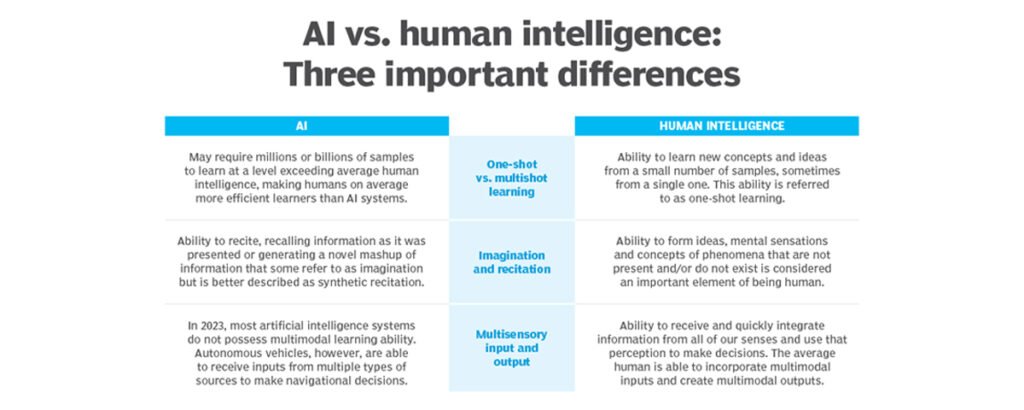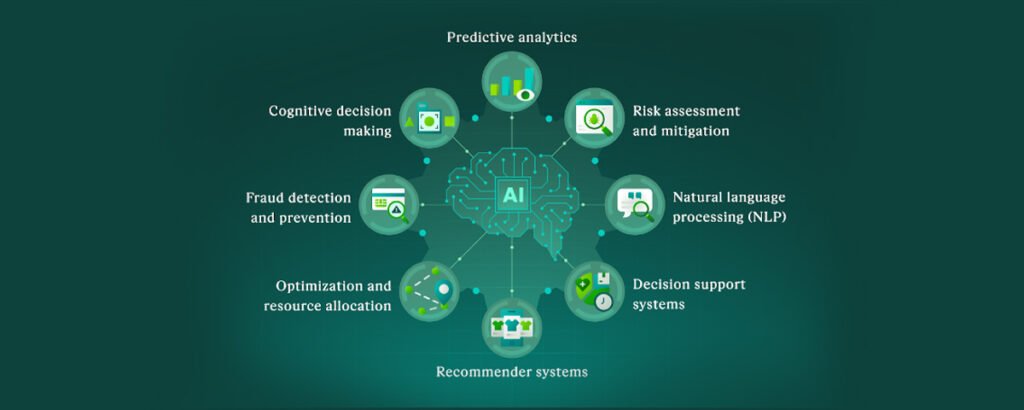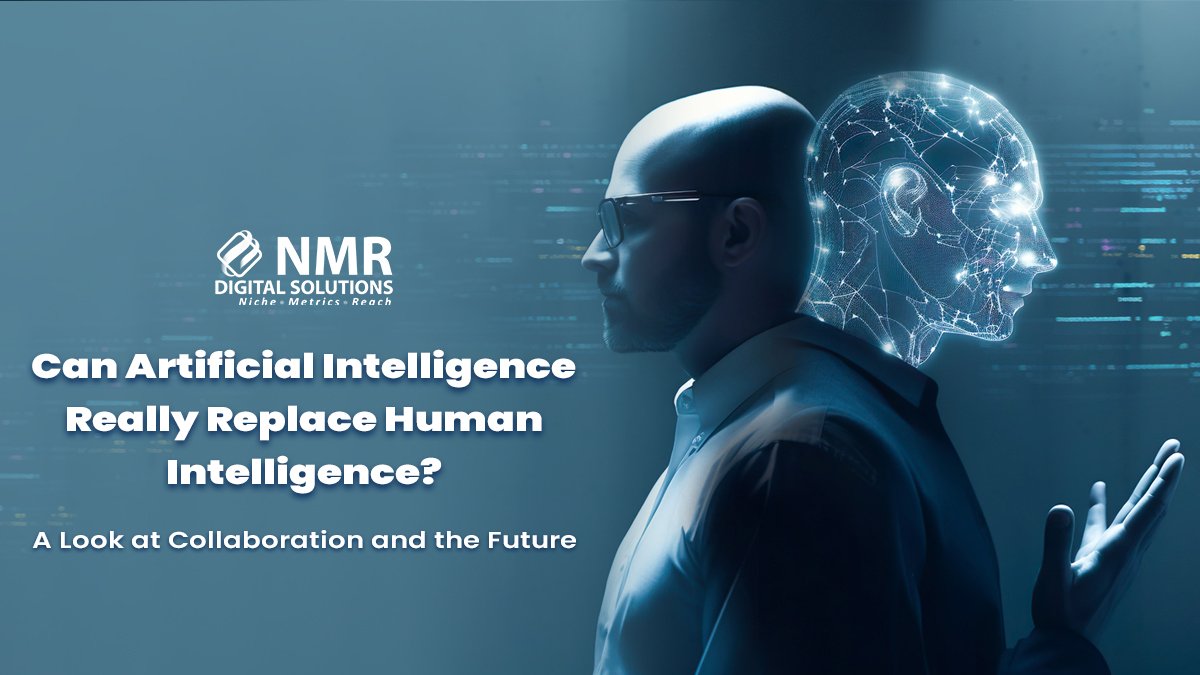Artificial intelligence (AI) has undeniably reshaped our world, transforming industries and fundamentally altering how we live and work. From virtual assistants anticipating our needs to self-driving cars navigating complex roadways, AI’s capabilities are constantly expanding. However, a critical question emerges amidst this progress: Can AI truly supplant human intelligence, or is it more of a complementary tool?
To address this inquiry, we must delve into the limitations of AI and the unique strengths of human cognition.
1. Understanding the Boundaries of Artificial Intelligence
While AI has made remarkable strides, it still possesses limitations in areas integral to human intelligence.

1.1. General Intelligence vs. Narrow Intelligence
AI excels at narrow intelligence, demonstrating specialized proficiency in specific tasks – think image recognition software or chess-playing algorithms. However, humans possess general intelligence, encompassing a broad spectrum of cognitive abilities like problem-solving, reasoning, and learning across diverse situations. AI currently lacks the flexibility and adaptability to navigate the complexities of the real world in the same way humans do.

1.2. The Creative Mind: Unleashing Innovation Beyond Algorithms
Creativity, a cornerstone of human intelligence, involves originality, imagination, and emotional expression. It fuels innovation and drives progress across various fields. While AI can be trained to generate creative text formats or musical pieces, it often lacks the depth of understanding and emotional connection that fuels true human creativity.
2. The Social and Emotional Dimensions of Human Intelligence
Social understanding, emotional intelligence, and empathy are fundamental aspects of human interaction that present significant challenges for AI.

2.1. Decoding Context and Non-Verbal Cues in Social Situations
Humans effortlessly interpret context and non-verbal cues – facial expressions, body language, and tone of voice – to grasp the true meaning behind communication. AI systems, however, often struggle to decipher these subtle nuances, leading to misinterpretations and communication breakdowns.

2.2. The Complexities of Empathy and Understanding Diverse Perspectives
Empathy goes beyond simply recognizing emotions. It involves understanding another person’s unique experiences, perspectives, and cultural backgrounds. AI systems are still grappling with this multifaceted concept, making it difficult for them to build genuine connections and navigate the complexities of human relationships.
3. Balancing Act: Leveraging AI with Human Expertise
For responsible and unbiased development of AI technologies, human involvement is essential.

3.1. Training the Machine Mind: The Role of Supervised Learning
Supervised learning techniques are a cornerstone of AI development. Here, humans provide explicit instructions and corrective feedback to machine learning algorithms, shaping their behavior and decision-making processes. This highlights the ongoing need for human expertise to guide AI development and ensure its alignment with ethical principles.

4. Addressing Bias in AI: A Step Towards Fairness and Inclusivity
A major challenge in AI is the potential for bias. This can arise from the inherent biases present in the data used to train AI systems. For example, an AI trained on a dataset with predominantly male engineers might perpetuate gender bias in its decision-making.
4.1. Recognizing and Mitigating Biases During Data Collection
To reduce bias in AI applications, diverse and representative datasets are essential. This necessitates proactive efforts to collect data that reflects the variety of demographics and experiences present in the real world.
4.2. Auditing and Testing for Bias: A Continuous Quality Assurance Process
Even with careful data collection, biases can still emerge. Ongoing monitoring and evaluation are crucial to detect and address bias issues that may arise in deployed AI systems. Regular audits and testing can help identify and mitigate potential biases, ensuring fairer outcomes.
5. Embracing the Benefits of AI While Preserving Our Human Edge
When thoughtfully integrated, AI can be a powerful tool for automation, enhancing efficiency and augmenting human capabilities.

5.1. Augmentation: Redefining Human Potential Through Man-Machine Collaboration
Imagine a doctor utilizing AI-powered diagnostic tools to analyze patient data and generate insights, allowing them to focus on personalized care and patient interaction. This collaborative approach showcases the power of AI augmentation, where humans and machines work together to achieve results that surpass what either could accomplish alone.
6. Shaping the Future: Ethical Considerations in the Age of Advanced AI
As AI continues to evolve, ethical considerations become paramount. We need frameworks and regulations to guide the responsible deployment of AI systems.

6.1. Ensuring Transparency and Accountability in Algorithmic Decision-making
Interpretable AI and algorithmic audits are crucial tools for promoting transparency and accountability in AI-driven decisions. By understanding how AI systems arrive at conclusions, we can build trust and mitigate the risks of discrimination or unfair treatment.

6.2. Adapting to the Changing Landscape of Work with AI Increased automation due to AI will likely impact the future of work. We must consider strategies for upskilling and job

Hi nmrdigital.com,
I just saw that you are advertising your motorcycle… would recommend putting it up for sale on http://motorcyclestogo.com if you haven’t done so already. It’s a reputable marketplace and will sell easily on there.
Thanks, Dave
Greetings,
Am glad to connect with you, My name is Pitroda Satyan G, am an investment consultant with Shrooq AlQamar Project Management Services Co LLC, I have been mandated by the company to source for investment opportunities and companies seeking for funding, business loans, for its project(s). Do you have any investment or project that is seeking for capital to fund it?
Our Investments financing focus is on:
Seed Capital, Early-Stage, Start-Up Ventures, , Brokerage, Private Finance, Renewable Energy Project, Commercial Real Estate, Blockchain, Technology, Telecommunication, Infrastructure, Agriculture, Animal Breeding, Hospitality, Healthcare, Oil/Gas/Refinery. Application reserved for business executives and companies with proven business records in search of funding for expansion or forcapital investments..
Kindly contact me for further details.
await your return e.mail soonest.
Regards
Dr. Pitroda Satyan G
Shrooq AlQamar Regional Consultant
Address: 72469 Jahra Road Shuwaikh Industrial
Tel/WhatzApp: +968 7866 9578
Email: agent@shrooqconsultant.com
Our Offices:
Middle East Facilitating Office: Ahmad Al Jaber St, Kuwait City, Kuwait
Oman Branch Offices: CHXM+J3G, Sohar, Oman
UAE Dubai: Financial Consortium